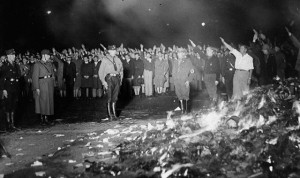Gary M. Wisenbaker, Valdosta Today Editorial Director
VALDOSTA — The New York Times, the nation’s “paper of record” recently announced the fate of the Confederate battle flag: “America’s leading merchants have spoken: The Confederate flag is coming off the shelves. Walmart, Amazon, eBay and Sears all announced bans on the sale of Confederate flag merchandise, amid an intensifying national debate over the use of the controversial flag.”
And that’s not all. There’s talk of removing monuments dedicated to “our Confederate dead” that have stood for decades, even generations, in public view, doing away with Confederate Memorial Day, even relegating the iconic movie “Gone with the Wind” to the dustbin of history.
These are not the logical actions expected in the aftermath of the horrid event that recently took place in a Charleston church leaving eight black Americans dead by the hand of a white thug who wanted to “start a race war”. These actions are not logical because there is no rational relationship between that murderous act and the culture and heritage of the South. If that were the case, then no one would need to start a race war: we would already be in the midst of one.
No, the national and regional reaction, this “intensifying” debate about a “controversial flag” and culture, by those obsessed with political correctness de jure is, in a word, repression, even censorship. And it has an ugly history.
In the spring of 146 BC, when Rome finally defeated Carthage in the Third Punic War, they sold the remaining inhabitants into slavery, razed the city and then sowed the city with salt to ensure that nothing would grow there again. Carthage had offended Rome with its noble and heroic efforts in defending itself against the empire’s assault.
Rome was determined to erase Carthage from human memory.
 Throughout 1933 Nazi student organizations, professors, and librarians made lists of books and writings offensive to the Nazi cause and, therefore, unsuitable for public consumption. On May 10 of that year, Nazi soldiers and Hitler youth groups ransacked libraries and bookstores all over Germany collecting books on the lists and burned them.
Throughout 1933 Nazi student organizations, professors, and librarians made lists of books and writings offensive to the Nazi cause and, therefore, unsuitable for public consumption. On May 10 of that year, Nazi soldiers and Hitler youth groups ransacked libraries and bookstores all over Germany collecting books on the lists and burned them.
The Nazis were determined to remove offensive thought from the public domain.
 And even today radical Islamists destroy priceless, unique and irreplaceable historical monuments and artifacts because they are offensive to the radicals’ religious sensibilities. Usama Hasan, an Islamist working with the Quilliam Foundation to combat these destructive acts, says, “”It’s very sad. You lose all that cultural heritage, music, history, art, ancient books. If they (Islamists) don’t agree with what’s in them … they seem to think it’s OK to burn these books.”
And even today radical Islamists destroy priceless, unique and irreplaceable historical monuments and artifacts because they are offensive to the radicals’ religious sensibilities. Usama Hasan, an Islamist working with the Quilliam Foundation to combat these destructive acts, says, “”It’s very sad. You lose all that cultural heritage, music, history, art, ancient books. If they (Islamists) don’t agree with what’s in them … they seem to think it’s OK to burn these books.”
The radical Islamists are determined to remove non-Islamist culture from the face of the earth.
The actions taken by the Romans, Nazis and radical Islamists are revisionistic in nature. Theirs is a worldview where the past can be changed, where history can be rewritten. Today’s assault on Southern heritage is no different.
Justifying the call to remove the symbols of the Old South from the public eye requires linking those symbols to something hideous. And slavery is clearly hideous. The myopic view, however, of the South willing to go to war for no reason other than slavery is simply dishonest.
The burning issues throughout the 1850’s chiefly included oppressive tariffs aimed at the South, economic disparity between the regions, and federalism. Thus, “the Cause” had far more to do with protecting the sovereignty and economic life of the states from the federal government than preserving an institution that was already on its way out.
The South’s pervasive agrarian economy brought a citizenry dependent on itself for survival. There were no paychecks or bosses in factories like one found in the North. And it was this independence and self-reliance many Southerners were willing to fight for and, having done so and lost, preserve in their monuments, statues and flags.
Revisionism and repression has its dangers. After cleansing the libraries and bookstores of books offensive to their politics, the Nazis then turned on an entire race and religion. And they did it in obeisance to political correctness.
 Gary Wisenbaker, B.A., J.D. is a native of South Georgia where he practiced law in Valdosta and Savannah for 31 years. He has served as state chairman of the Georgia Young Republicans and Chairman of the Chatham County (Savannah) Republican Party. Gary is a past GOP nominee for State Senate, past delegate to the Republican National Convention and has consulted on numerous local Republican campaigns as well as chaired or co-chaired campaigns for President and US Senate on the county and district level. He is the principal and founder of Blackstone, LLC, a corporate communications and public relations concern as well as Wiregrass Mediation Services, LLC, a general civil litigation mediation firm.
Gary Wisenbaker, B.A., J.D. is a native of South Georgia where he practiced law in Valdosta and Savannah for 31 years. He has served as state chairman of the Georgia Young Republicans and Chairman of the Chatham County (Savannah) Republican Party. Gary is a past GOP nominee for State Senate, past delegate to the Republican National Convention and has consulted on numerous local Republican campaigns as well as chaired or co-chaired campaigns for President and US Senate on the county and district level. He is the principal and founder of Blackstone, LLC, a corporate communications and public relations concern as well as Wiregrass Mediation Services, LLC, a general civil litigation mediation firm.
Gary hosts his own blog at www.garywisenbaker.com and recently published his first fictional work, “How Great is His Mercy: The Plea”, on Amazon.com. His opinions are regularly published on ValdostaToday.com.











